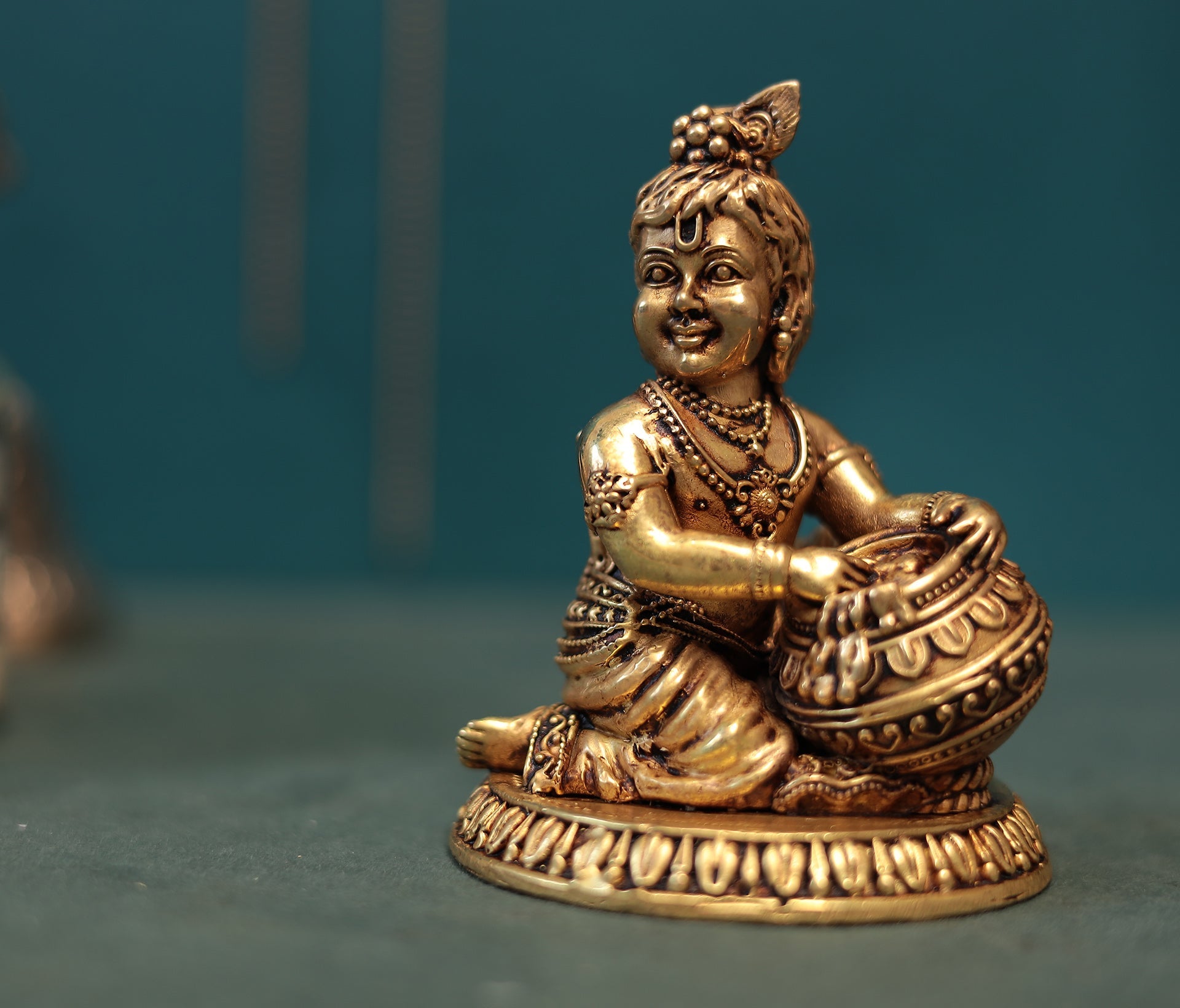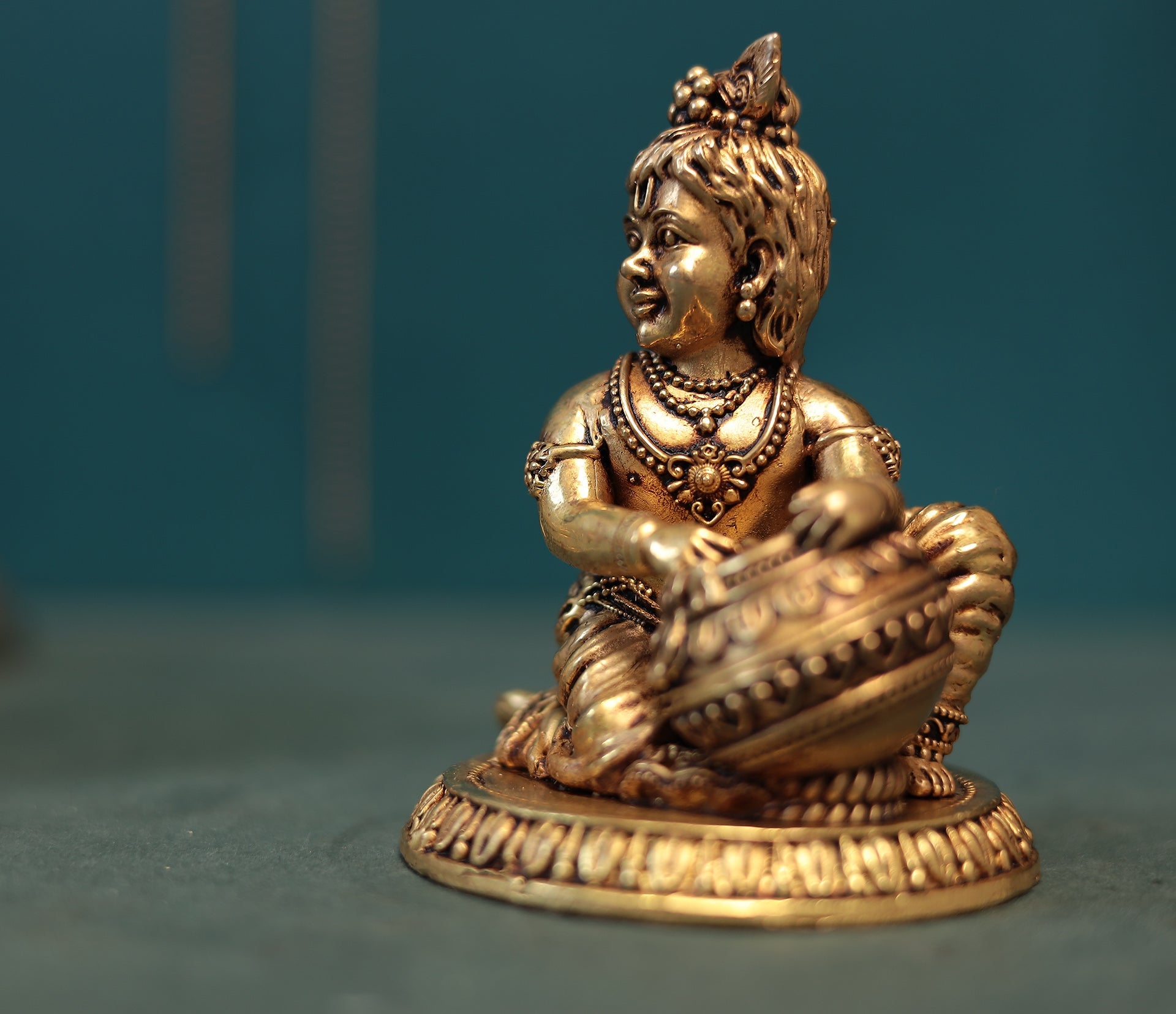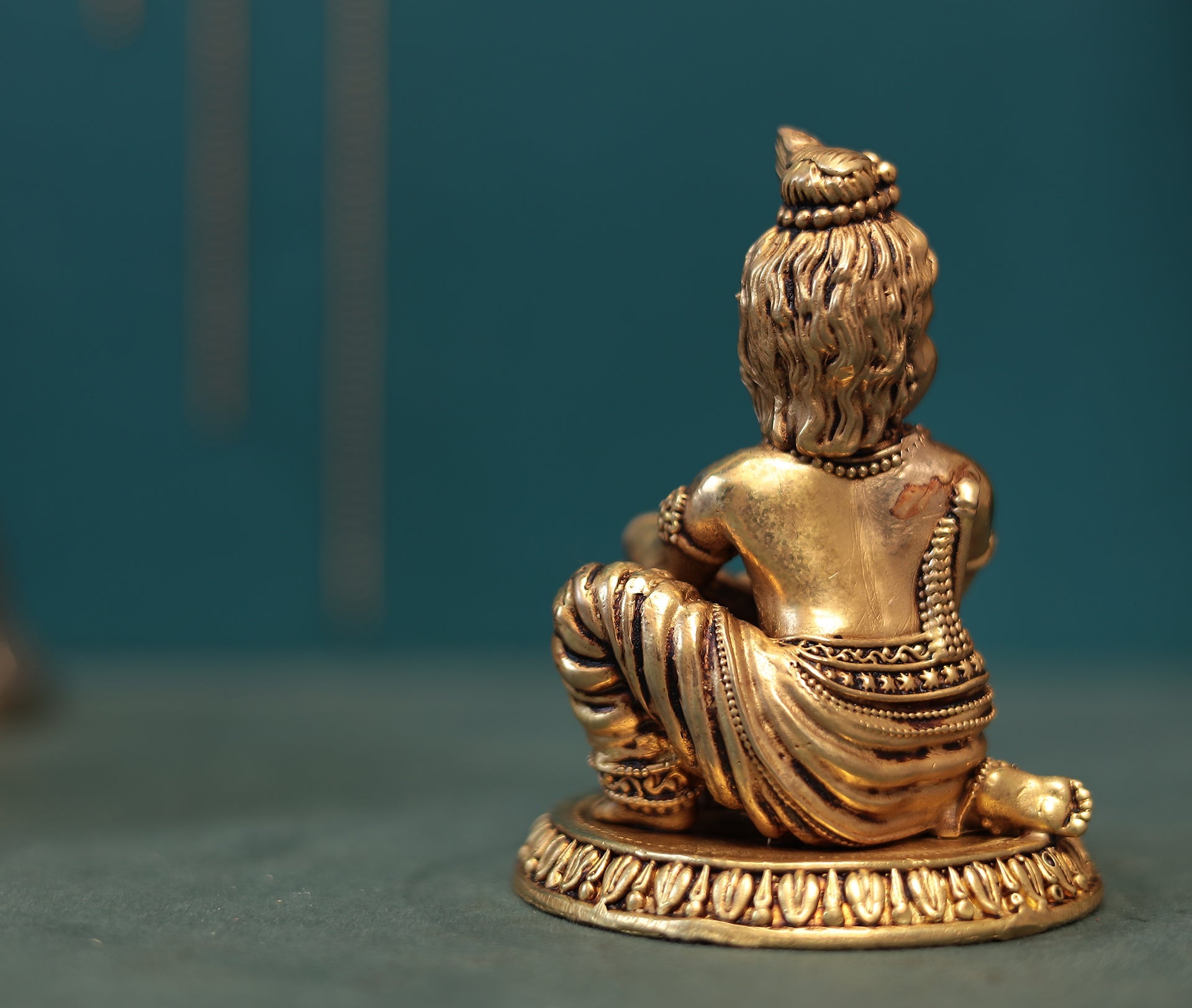


Pure Brass Antique Finish Baby Krishna Idol In 4"
Sacred Offerings for Your Divine Space
- Get 200 Off On your First Purchase, Use Code (WELCOME2000)
- Get 10% Off on Pre-Paid Order
- Buy 3 or more and get flat 10% Off, Use Code (AARTIHANDICRAFT10)
Please note, as all our products are handmade, there may be very slight variations in design, color, or size. These natural differences enhance the uniqueness of each piece, ensuring every item is special and crafted with care and quality.
Delivery Time : 5-7 Working Days
For Express & International Shipping contact at 9928281717 or 9694578739

Dimension:
H*L*W - 4*3*3 Inches
Weight - 300 Grams
Description:
-
Iconography: Baby Krishna is often depicted as a charming and mischievous infant, known for his playful activities. Common representations include him crawling on all fours, holding a ball of butter (Makhan), or stealing butter from a pot, reflecting his playful nature.
-
Stories and Legends: Numerous stories from the Bhagavata Purana and other texts highlight Baby Krishna's antics, such as stealing butter, playing with his friends, and performing miraculous feats. These stories emphasize his divine nature and endearing qualities.
- Butter Theft: One of the most famous stories is of Krishna stealing butter from the homes of villagers, earning him the nickname "Makhan Chor" (butter thief).
- Kaliya Mardan: Another popular tale is Krishna subduing the serpent Kaliya, showcasing his divine powers even as a child.
-
Symbolism: Baby Krishna represents innocence, joy, and divine playfulness (Leela). His childhood stories convey moral and spiritual lessons, teaching devotion, love, and the triumph of good over evil.
-
Worship and Festivals: Baby Krishna is widely worshipped, especially during Janmashtami, the festival celebrating his birth. Devotees fast, sing devotional songs, and reenact his childhood exploits through dance and drama.
-
Significance in Art and Culture: Baby Krishna is a popular subject in Indian art, literature, music, and dance. His images and idols are commonly found in households and temples, symbolizing divine love and protection.
Choose options





